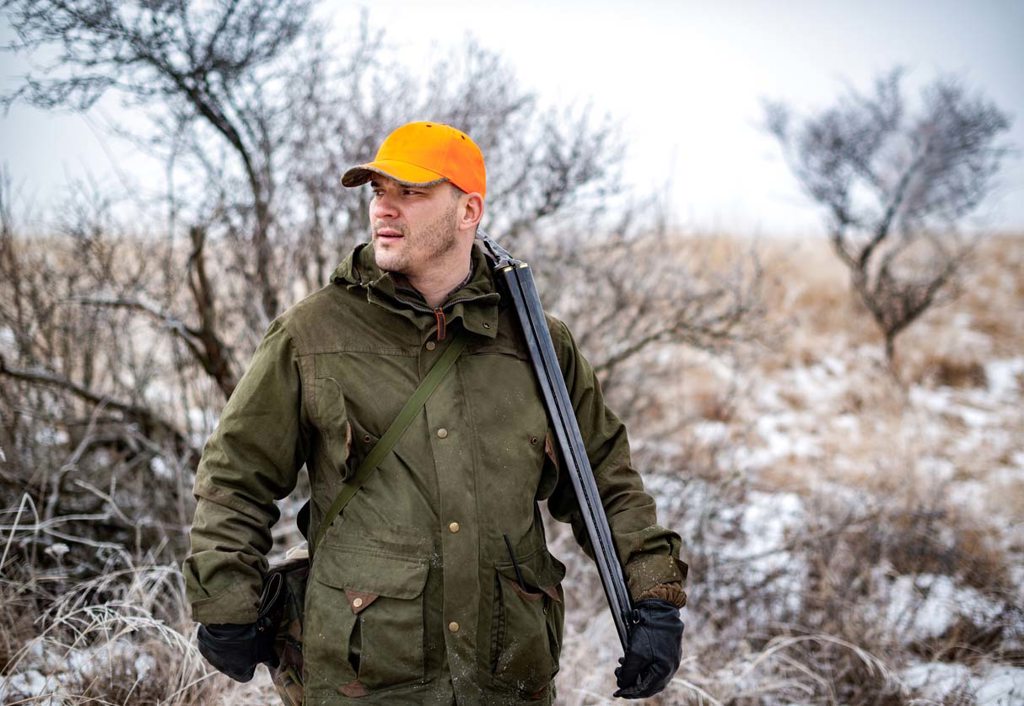How to Stay Safe While Hunting This Winter

In Pennsylvania, people hunt everything from quail to deer. Whether you are hunting small or big game, there are a few things to keep in mind to stay safe while outside this season.
Frosty facts
The average temperature in Pennsylvania during the winter months is usually in the 20s.We can see about three inches of precipitation each month during the winter. Cold temperatures and freezing precipitation create unique health risks during this time of year, such as frostbite, hypothermia and even heart problems.
Layer up
Hypothermia is the leading cause of death among outdoor recreationists. It happens when the core body temperature drops below 95°F.
“Hypothermia is a medical emergency,” said Ethan Muri, CRNP, FNP-C, a certified registered nurse practitioner in Family Medicine at Penn Highlands Healthcare. “The heart, nervous system and other organs cannot function as effectively, and if left untreated, hypothermia can cause heart and respiratory failure, which ultimately could lead to death.”
Frostbite is also a serious concern for hunters. “Frostbite happens when cold or freezing temperatures damage the skin and underlying tissues,” Ethan explained. “It can develop in as little as five minutes, and it may cause severe damage.”
Dressing in layers with the right gear is one of the best ways to prevent conditions such as hypothermia and frostbite. Layering allows you to regulate your body temperature by adding or removing clothing to stay comfortable as weather conditions and activity levels fluctuate. A base layer, such as long underwear, will help keep your skin as dry as possible. A middle layer, such as a fleece or puffy jacket, will trap much of your body heat. An outer layer, such as rain gear, will protect you from rain and wind. Finally, you should also wear gloves, insulated boots with thick socks and a hat that covers your ears.
Staying warm while keeping still
It can be difficult to stay warm during long, motionless hours in a blind or hunting shelter. If possible, use a hard-sided blind, which will help retain heat and keep out the wind and rain. If your blind has a built-in heater, remember to pack the appropriate fuel. If you do not have a built-in heater, you may want to bring a small portable heater with you.
Your body burns more calories when you are cold because it has to work harder to maintain its temperature, so be sure to pack snacks to replace that lost energy. Bring plenty of fluids, too. It is just as important to stay hydrated during the winter months as the spring and summer. Your sense of thirst may not be triggered as easily when it is cold, which can cause you to drink less fluids. If the thought of drinking cold water in a cold blind is not appealing, warm herbal teas or broths can help you stay hydrated.
Be aware of your surroundings
Planning is essential before any hunting trip, especially during the winter. Always check the forecast before heading out. How cold is it supposed to get? Is it supposed to snow or sleet? Pay close attention to your environment too. Are there dangerous icicles hanging above you? Are there deep snow drifts around? Is there thin ice that could easily break through? Think through all of these questions before heading outside.
Talk to your doctor
Winter conditions can be brutal, and you need to know what kinds of activities you can safely do based on your current fitness. Schedule a checkup with your primary care provider to discuss your physical ability and how to stay safe and healthy this winter.
The primary care providers at Penn Highlands Healthcare include internal medicine, family medicine and pediatric practices to cover all ages of life. In addition to annual physicals, they can treat your illnesses, minor injuries and chronic conditions, such as high blood pressure or osteoarthritis, as well as providing immunizations. To find a provider near you, visit www.phhealthcare.org/primarycare.

